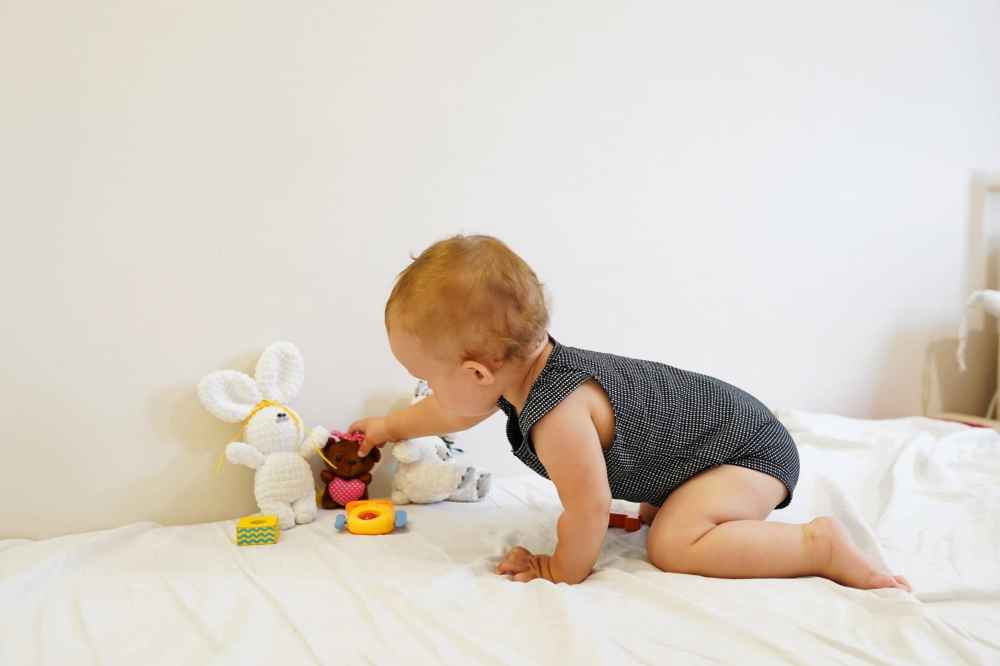My first baby Charlize was born in 2018 via C-section due to a breech presentation. While the procedure went without incident, soon after beginning solids she developed mild eczema and sesame allergy which required medical intervention for management.
Researching the effects of C-section led me to discover that mothers pass along vaginal and gut bacteria during vaginal birth; this colonization sets the basis for future health benefits and this process is known as microbiome seeding.
My engineering knowledge was put to good use as I perused peer-reviewed studies pertaining to C-section birth or antibiotic exposure during labor; such babies could potentially miss essential bacteria that will ensure healthy development.
Importantly, your gut contains approximately 80% of your immune system which is determined by which bacteria reside there or don’t reside there.
C-section babies may require extra microbiome support
Unfortunately, disruptions of microbiome seeding could have an adverse impact on immune development. Babies born via cesarean tend to miss out on exposure to their mother’s gut and vaginal microbiomes which would offer protection for their gut flora.
Research indicates that C-section babies may have an increased risk of Atopic March – an allergy condition typically characterized by eczema which progresses into food allergies, asthma attacks and even chronic illnesses if left unchecked.
My research also demonstrated that even during vaginal birth, essential bacteria needed for her baby’s gut health may not transfer effectively due to lifestyle or environmental changes; so it is critical for mothers to assess if extra support, such as probiotics or lifestyle shifts is required as she passes on their health through their baby.
Related Article: 5 ways to help protect a newborn’s microbiome after birth
I recently learned of an effective strategy to restore gut imbalances in infants within their first 1000 days of life. Studies show that eliminating what’s known as the C-section Microbial Signature by one year can significantly lower their risk for allergies.
Armed with research results and doing my best, I did all that was within my power to support my daughter’s gut health.
As part of my C-section decision, I chose a vaginal swabbing procedure and breastfed for what some might consider long – 18 months! In that time I also made homemade kefir and fermented vegetables on my own as well as spending time around pets and visiting local farms.
After developing my initial at-home baby gut health test, there was no way of telling if my efforts had had the desired impact; unfortunately there weren’t any stool tests specifically targeting newborns’ first 1,000 days of life available yet.
At that time, all available gut tests used adult reference ranges for their results and recommendations, leading to inaccurate readings that weren’t suitable for infants.
So I took matters into my own hands: one month after giving birth to my second baby, I established Tiny Health.
Tiny Health’s mission is simple: Provide pregnant mothers and newborn babies a test tailored specifically towards them during their first 1,000 days of life.
Related Question: Should my infant take baby vitamins?
Starting my research from scratch and with assistance from Mayo Clinic’s Scientific Advisor, I conducted a small, self-funded study involving nine mothers enrolled in pregnancies that started collecting their microbiome samples during gestation and after they gave birth I collected their infant’s stool samples regularly until their babies turned two years old. This information proved truly effective at providing parents with crucial data they could use to detect any imbalances early and implement necessary adjustments as required.
After we raised our seed round in 2021, I collaborated with microbiologists from John Hopkins, Cornell, USC and WashU to complete our proprietary bioinformatics pipeline and data science for our product – leading us to launch the world’s first at-home baby gut health test which provides parents with evidence-based insights as well as personalized nutrition, supplement and lifestyle recommendations.
By giving parents more transparency into what is in their baby’s gut, parents can act faster to find solutions to gassiness, allergies or chronic conditions in infants and toddlers. Our ultimate mission is to improve health outcomes of future generations and believe our work will result in improved data, research, diagnostics and microbiome therapeutics.
Here are 8 strategies for giving your baby the best start in terms of gut health: 1. Determine Your Own Microbiome To ensure you give birth with optimal gut and vaginal microbiomes, preconception or pregnancy testing your own gut and vaginal flora can ensure you pass along essential protective microbes to their newborn upon delivery.
- Strive for vaginal birth
If possible, aim for vaginal labor; in case of C-section and having an intact vaginal ecosystem. Consider initiating a vaginal swabbing protocol. - Breastfeed for at least 6 Months
To promote optimal development in your baby and ensure they receive beneficial microorganisms from its mother’s breast milk supply, strive to breastfeed your infant for at least six months (exclusive or partial breastfeeding) or longer if possible. This allows enough beneficial bacteria transference for optimal development.
Related Research: Parenteral feeding methods impact infant gut microbiota
- Monitor for symptoms
If your baby exhibits the following symptoms, conducting a baby gut test might help identify potential gut imbalances that need addressing: colicy, gassiness, sleep issues, eczema, food allergies, milk protein intolerance or constipation could all indicate issues in his/her system that needs addressed immediately. - Not every baby requires probiotics We do not advocate long-term use, though certain babies with high levels of unfriendly bacteria might benefit from short doses of specific probiotic strains that might otherwise be missing in the gut health test results. Not all probiotics work similarly either: an infant health test will give an idea if your probiotics are working or when to discontinue them.
- Increase exposure
Babies need exposure to various bacteria early in life in order to build their immunity effectively, so we advise exposing your child to nature, animals and nontoxic household cleaners as opposed to toxic ones for best results – overly-clean environments may increase allergy risks more rapidly than ones without. - Choose an environment-rich daycare
Studies have indicated that choosing an environment-rich daycare may lead to a healthier microbiome in comparison with one with artificial turf or limited outdoor interactions. - Only prescribe antibiotics when absolutely necessary
Although antibiotics can save lives, their long-term side effects on children’s digestive health could have unexpected ramifications. Acquiring baseline data about your baby’s microbiome before treatment gives insight on how best to restore their gut health afterward.
Sources
Bager P, Wohlfahrt J and Westergaard T (2008) conducted meta-analyses regarding Caesarean delivery and risk for atopy and allergic disorders among newborns after cecarian section (CCD), showing an association with higher risks for both conditions (atopy) and allergic disesases; see Clinical & Experimental Allergy (2008) 38(4) 634-42 with their doi being 10.1111/j.1365-2222.2008.02939.x).
Olm MR, Dahan D, Carter MM, Merrill BD, Yu FB, Jain S, Meng X Tripathi S Wastyk H Neff N and Holmes S 2022 Jun 10;376(6598):1220-3
Roslund MI, Puhakka R, Gronroos M, Nurminen N and Oikarinen S were found by Roslund and colleagues to significantly influence immune regulation and health-associated commensal microbiota among daycare children through biodiversity interventions. Science Advances 2020 Oct 14;6(42):eaba2578.
Shao, Forster SC and Tsaliki E have published “Stunted Microbiota and Opportunistic Pathogen Colonization After Cesarean Section Birth”. Nature 2019 574 776 (11572-11560 1). doi:10.1038/s41586-019-1560-1
Stokholm J, Thorsen J and Blaser MJ’s study explored whether delivery mode and gut microbial changes associated with an increase risk for childhood asthma. Sci Transl Med 2020;12(569):eaax9929 for more details.
Vighi G, Marcucci F, Sensi L, Di Cara G e Frati F. Allergy and the Gastrointestinal System in Clinical Exper Immunol 2008 [153 Suppl 1(Suppl 1):3-6], doi:10.1111/j.1365-2249.2008.03713.x; Zhaoqing Qin and Elson CO’s “Adaptive Immunity Education by Gut Microbiota Antigens,” Immunology 2018 154(1) 28-37,” doi:10.1111/imm12896];





